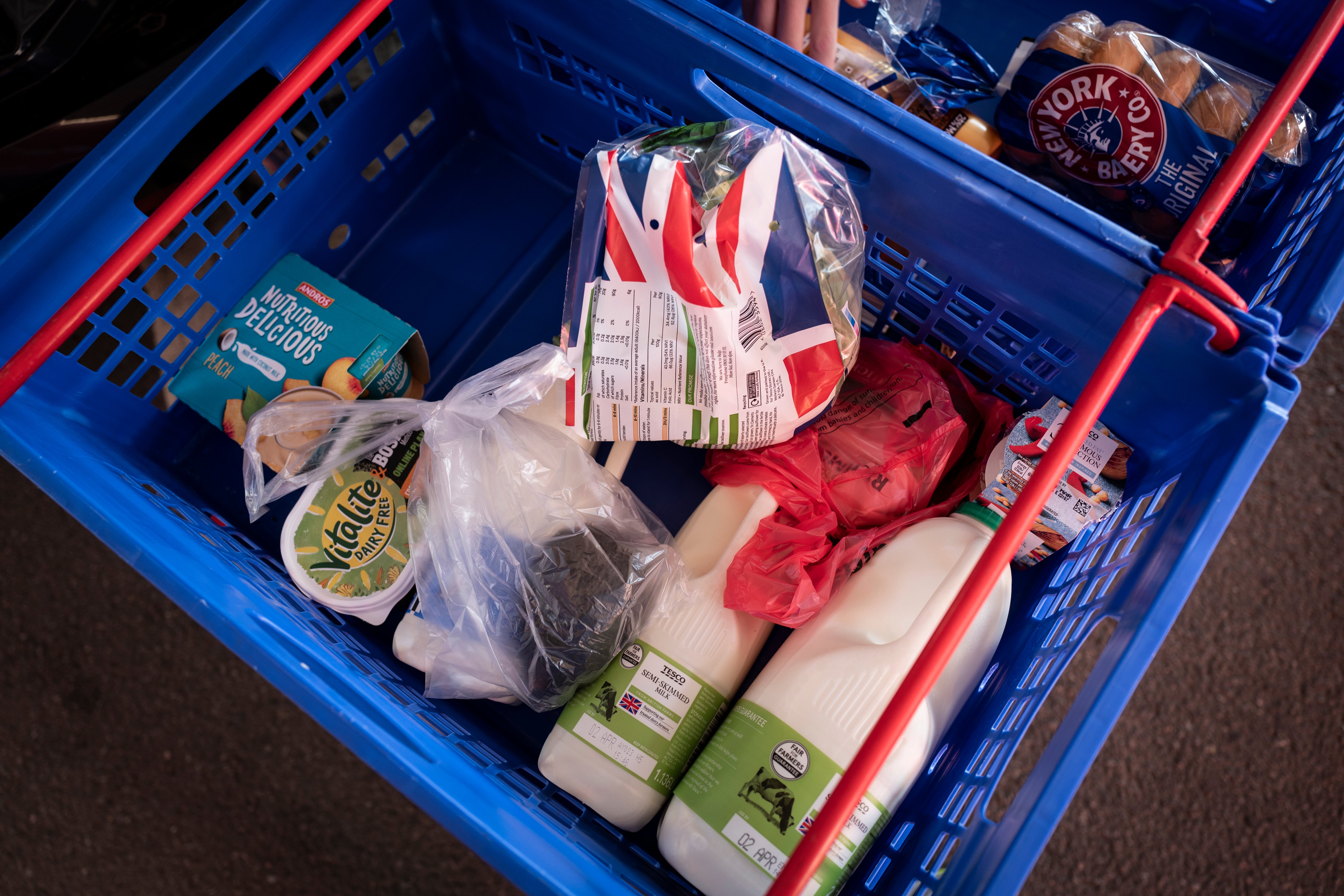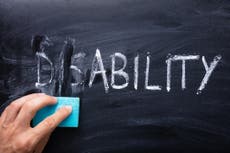One in three disabled Britons unable to buy groceries at some stage during the pandemic
Survey reveals two thirds of those with disabilities feel they have been forgotten about

Your support helps us to tell the story
From reproductive rights to climate change to Big Tech, The Independent is on the ground when the story is developing. Whether it's investigating the financials of Elon Musk's pro-Trump PAC or producing our latest documentary, 'The A Word', which shines a light on the American women fighting for reproductive rights, we know how important it is to parse out the facts from the messaging.
At such a critical moment in US history, we need reporters on the ground. Your donation allows us to keep sending journalists to speak to both sides of the story.
The Independent is trusted by Americans across the entire political spectrum. And unlike many other quality news outlets, we choose not to lock Americans out of our reporting and analysis with paywalls. We believe quality journalism should be available to everyone, paid for by those who can afford it.
Your support makes all the difference.More than a third of Brits living with a disability have been unable to buy groceries at some stage during the pandemic - because they couldn't get to the shop, research has revealed.
A study of 1,000 adults with a physical disability or a mental health condition found 70 per cent have felt more anxious about trips to the supermarket and other shops than they did before the pandemic.
Almost half have found using public transport a more difficult and stressful experience, while 34 per cent have struggled to attend a non-Covid related medical appointment.
But 20 per cent missed out on assistance because their carer or someone else had been affected by the pandemic, while 25 per cent have found it hard to maintain relationships – be it friendship or romantic.
As a result, 45 per cent have felt lonely, 50 per cent have felt depressed and 37 per cent have felt isolated because of the coronavirus.
The study, conducted by Smart Energy GB, examined how the day-to-day tasks that many take for granted have caused issues for people with a disability, during the Covid crisis.
A quarter said they were financially worse off because of the pandemic, with 14 per cent unable to get to the shop to top up their prepay gas or electricity meter.
Three quarters also said that they believe those living without a disability don’t understand how difficult it has been for them, during the pandemic and lockdown.
And 67 per cent went as far as to say that they felt people with a disability had been forgotten about during the pandemic.
Paralympian, TV presenter and author Ade Adepitan MBE is working with Smart Energy GB to highlight the benefits of smart meters to disabled and vulnerable people.
He said: “There have always been issues with getting around when you have a disability and since the pandemic, these things have become tougher.
“I use my hands all the time, so if I am touching stuff, I am worried about the risk of inadvertently touching my mouth or touching my eyes. It makes things emotionally and physically very stressful.
“Living with a disability or a vulnerable circumstance means daily challenges that many people might not recognise – challenges which have become harder this year.”
The research was part of a wider survey of 2,000 UK adults who were physically disabled, living with a mental health condition, aged over 65 or on a low income.
Overall, two thirds (66 per cent) said the virus had made their lives harder this year.
But 70 per cent think restrictions on activities such as going to the shops or seeing friends and family give people more of an idea about the challenges faced by people living with a disability, on low income or that are elderly every day.
Dan Brooke, chief executive of Smart Energy GB, said: “Life’s tough for everyone right now and disabled and people living in vulnerable circumstances are being hit especially hard by Covid and its hardships.
“It’s imperative we make help and support available to those who need it most.”
SWNS



Join our commenting forum
Join thought-provoking conversations, follow other Independent readers and see their replies
Comments